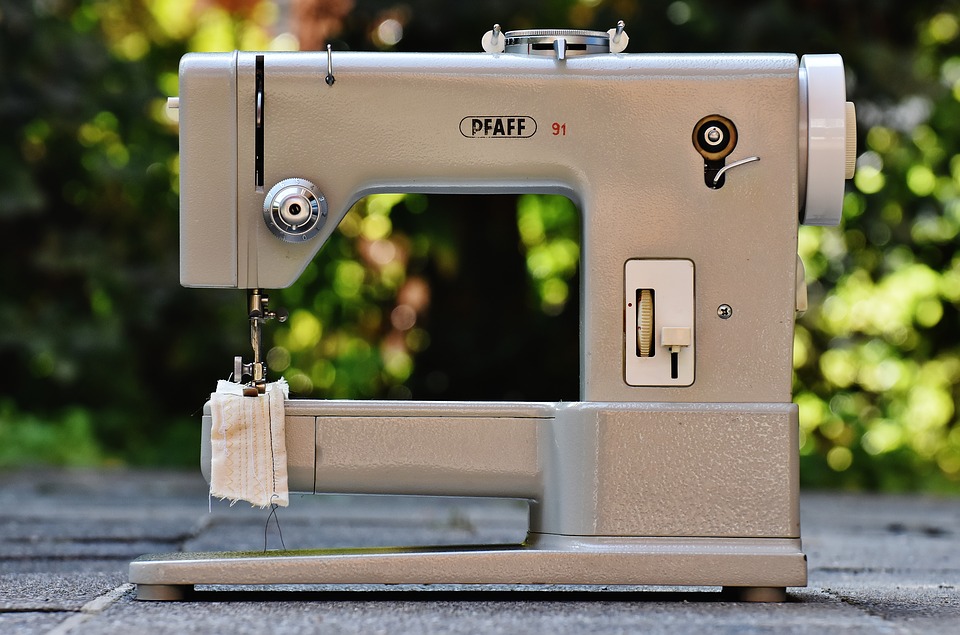Editor Picks for 2017
In 2017, we published some truly great writing on women and gender in history and science by a growing list of skilled writers and brilliant thinkers. Here are some of Lady Science editors' favorites from 2017.
MONTHLY ISSUES
The History of Data is the History of Labor by Deanna Day
"The history of data is the history of labor, and the history of labor is the history of women’s labor. Because women’s individual experiences are so often reduced to the particular, and the particular so often dismissed as the unimportant, translating ourselves into the form of collective data has often meant gaining recognition in the eyes of a medical authority that is incapable of seeing us in any other way."
Talking Like a "Princess": What Speaking Machines Say About Human Biases by Meryl Alper
"Humans craft speech technology that other humans use to speak. Synthetic voice options for anyone except cis white men have historically been limited and complicated. Voice is material and embodied, and even more so in the form of synthetic speech. “Voicelessness” isn’t an individual biological trait; being silent or speechless is socially, culturally, and politically shaped. Understanding the gendered politics of speech synthesis through the lens of disability enables us to re-shape the agenda and priorities of speech synthesis and technologies."
Life and Death in Dioramas by Hillary Moses Mohaupt
"Billed by many as “the godmother of forensic science,” Glessner Lee is often overshadowed by the grotesqueness of her primary teaching tool, a series of dollhouse-sized dioramas called The Nutshell Studies of Unexplained Death. The dioramas were designed to teach investigators how to observe a crime scene, and they transformed the way investigators approached crime. However, they also contributed to the belief that Glessner Lee was merely an elderly woman applying a feminine hobby to a worthy cause."
The Cost of Disclosure: On Being a Woman with a Disability in Geophysics by Jesse Shanahan
"Struggling to flourish despite widespread sexism is a brutal enough battle for women in science. Add the rampant ableism endemic in the scientific community, and this battle becomes a tortuously prohibitive obstacle to success. Furthermore, disabled scientists are already a rarity—just 1% of doctoral students in STEM are disabled. For many disabled women scientists, the price of disclosing their disability (a prerequisite for any workplace accommodations) is too high."
Why Are We Still Talking About the "Naughty Nurse"? by Jenna Tonn
"In many ways, the circulation of nursing stereotypes mask more complicated stories about the historical relationship between labor, gender, and power in modern medicine. Perceptions of the nurse as an object of interest—whether “naughty” or angelic—serve to distract us from contending with the real ways that professional caregiving remains central to our experiences of health and illness."
FROM THE BLOG
"Oh, yeah. That's totally a nipple": An Interview with Marie Sena by Leila McNeill
But sometimes, the personal is not political; it’s just personal. Sena believes that no matter what kind of tattoo clients ask her for, either 3D areola tattoos or embellished tattoos, this process is an essential part of ending their painful journey with breast cancer. Sena says, “It’s closing the book. It’s the last thing. The doctors have stitched you up. They’ve given you breast implants. Or they’ve given you tissue transplants from your belly fat. But that’s where they leave you. So [these women] are left in this Barbie doll state, where it’s like ‘well, you’re alive, be happy with that.’ ”
Sewing Science, Sewing History by Rebecca Ortenberg
"To re-imagine what it means to do science, technology, and medicine is to re-imagine who gets to count as a STEM professional. And this reframing of science and technology is central to the work of feminist historians of science and feminist theorists of science. It allows us to think about the way technology (and diverse technologists) shaped fashion and politics, culture and war."
Moon Schemes by Afton Lorraine Woodward
"As her story goes, she studied Babylonian astronomy with the permission of her father and could predict lunar eclipses, making people believe that she was drawing down the moon. Such knowledge wasn’t commonly held at the time, and being a woman, Aglaonice probably wasn’t expected to have or wield scientific knowledge. Therefore, people assumed she was performing witchcraft."
Maternity, Motherhood, and Field Sciences by Sam Muka
"I received news about my post-doctoral fellowship a few months before I realized I was pregnant. While my pregnancy was planned, or as planned as it could be, it was never supposed to coincide with the fieldwork required by my fellowship. But the post-doc was also planned and hoped for. In a short time, I had to make a decision: do the field work, some of which would be very late in my pregnancy, or pass it up."
Emily Wilson's translation of the "Odyssey" is the latest in a long history of feminist classical translation by Robert Davis
"Although we have tantalizing references to accomplished figures such as Aspasia, Diotima, and fragments of Sappho, almost all women were denied the tools and audience to actively participate in public life. As long as men have held the power to legislate who can translate the Greeks or be a classicist, they have reinforced a centuries-old silencing of women’s voices. We need feminist translations and revisions like Wilson’s to break through this ancient tradition that has worked to make women readers but never writers. And to remind us that heroes like Odysseus are, indeed, “complicated.” "
















